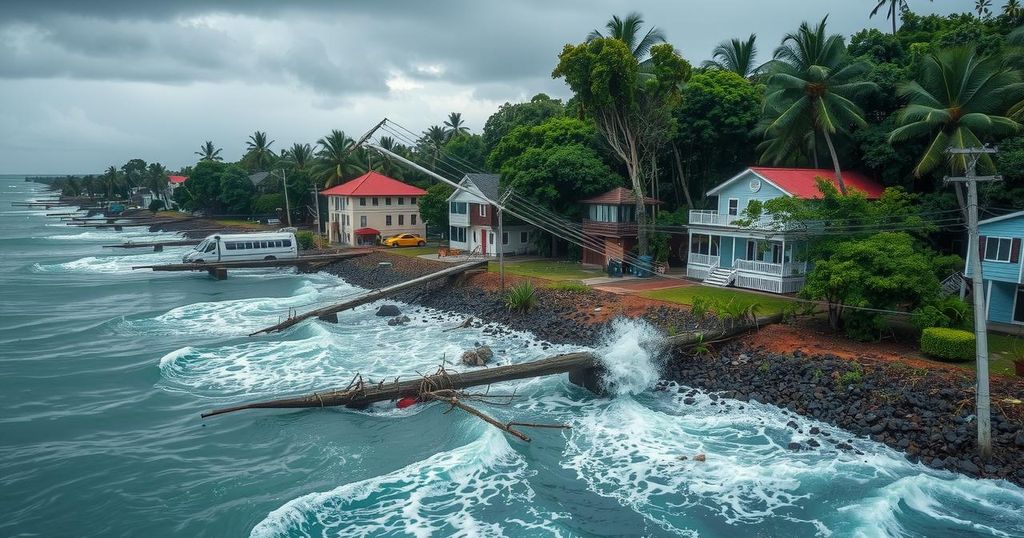Tropical Cyclone Chido has caused catastrophic damage in Mayotte, potentially leading to thousands of fatalities. The cyclone has destroyed neighborhoods, hospitals, and schools, inducing severe power outages and triggering warnings of dehydration and starvation among residents. As the poorest French territory, many individuals live in makeshift housing, complicating recovery efforts. The cyclone also struck Mozambique earlier, claiming lives there.
The islands of Mayotte, located in the Indian Ocean, have been severely affected by Tropical Cyclone Chido, leading to widespread devastation and a death toll that could reach into the thousands. This cyclone is being classified as the most destructive in the past nine decades. Witnesses reported scenes of destruction reminiscent of an apocalypse, with entire communities razed, hospitals and schools obliterated, and power outages leaving residents without electricity for over 36 hours. The dire conditions have resulted in warnings from local authorities about residents succumbing to dehydration and starvation, while search and rescue efforts are underway to locate survivors amidst the chaos. As one of the economically disadvantaged French territories, many citizens reside in precarious housing, which exacerbates the tragedy. Additionally, Tropical Cyclone Chido made landfall in Mozambique prior to reaching Mayotte, where it has already claimed three lives.
Understanding the situation in Mayotte requires awareness of its geographical and socio-economic context. This archipelago is a French territory in the Indian Ocean, characterized by its poverty and reliance on external aid. The severe impact of Tropical Cyclone Chido highlights not only the vulnerability of its infrastructure but also the resilience of its communities in the face of natural disasters. The cyclone’s destruction is indicative of climate-related challenges that affect many small island nations, posing significant threats to lives and livelihoods.
In summary, Tropical Cyclone Chido has wreaked havoc on Mayotte, leading to widespread destruction and a substantial death toll. Local authorities are facing immense challenges in providing aid and support to the affected population, who are grappling with unmet basic needs. This crisis underscores the broader issues of climate vulnerability and economic hardships faced by island territories, necessitating improved disaster preparedness and response strategies for the future.
Original Source: www.democracynow.org






